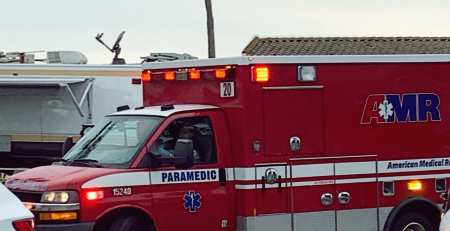Which ten things should you never do with the defense medical exam?

Which ten things should you never do with the defense medical exam?
When attending a defense medical exam (DME), also known as an independent medical examination (IME), it is crucial to approach the process with caution and awareness of your rights. The DME is typically arranged by the defendant’s insurance company or the defense lawyers and involves an examination by a medical professional chosen by them. It is not to be taken lightly. And, even though you already know they are biased (otherwise they would not have been chosen by the insurance claim’s department and the defense lawyers), you still have to appear to be polite and cooperative. So listen up, pay attention and get ready to adopt the right attitude before showing up at the company doctor’s office.
Here are ten things you should never do during a defense medical exam:
- Fail to Prepare: You have to be ready for this exam. And I mean ready. Before the exam, review your medical records and familiarize yourself with your medical history and any relevant details about your injury or condition. This preparation will help you provide accurate information during the examination. Some lawyers will provide their clients with a medical chronology, a medical dateline, that if done right will help you to know the sequence of your medical evaluation and treatment. You are not required to have memorized all the dates, tests, and results, but you are required to appear to be cooperative.
- Exaggerate or Downplay Symptoms: Be honest about your symptoms and limitations, and avoid exaggerating or downplaying them. Exaggeration can undermine your credibility, while downplaying symptoms may lead to inaccurate assessments of your condition. Clients who are not complainers tend to confuse telling the doctor about all your symptoms and problems associated with the accident injuries and sounding like a complainer. If you say nothing is wrong or downplay what is wrong, I guarantee the defense doctor will run to the file to record that history. Being honest means telling all that is wrong from the accident.
- Provide Inconsistent Information: Ensure that the information you provide during the examination is consistent with what you have previously reported to medical professionals and in legal documentation. Inconsistencies may raise doubts about your credibility. Whenever I interview the client, I type an initial interview note with a description of what the client tells me about the injuries and the initial evaluation at the hospital or doctor’s office. Then when I receive the initial medical records, I immediately go the initial visit where the history was taken; and I compare the two. You should be interested in what is in that initial history, because however busy the medial staff were that day, they may have mixed you up with the last patient. Own your case.
- Engage in Arguments or Confrontations: The examiner may ask probing or challenging questions, but it is essential to remain calm and composed. Avoid engaging in arguments or confrontations, as this can reflect poorly on you and may be used against you. There is nothing stopping you from asking for an explanation, more information or just saying that at this time I do not really remember. The defense doctor cannot expect you to be perfect. But, like I said in the last item, be ready to own your case.
- Volunteer Unnecessary Information: Answer the examiner’s questions directly and succinctly, without providing unnecessary information. Stick to the facts and avoid offering additional details that could be misinterpreted or used against you. Keep in mind this company doctor is not your doctor and he or she is not meeting with you to come up with a treatment plan. Be cooperative but always keep in mind, them being friendly to you, does not make them your friend.
- Withhold Information: While it is crucial to be selective in the information you provide, withholding relevant information or minimizing the severity of your symptoms can be detrimental to your case. Be forthcoming about your condition and any factors that may affect your recovery. If the previous night you had a bad night due to a related painful condition, and did not sleep well, tell the doctor. Do not apologize just offer the information as a fact.
- Ignore Discomfort or Pain: If the examination causes discomfort or exacerbates your pain, do not hesitate to communicate this to the examiner. Your well-being is paramount, and it is important to advocate for yourself during the process. Some defense doctors are so jaded that they do not even realize what they are doing is beyond reasonable. Speak up if you need to.
- Submit to Invasive Procedures: The examiner may request certain tests or procedures during the examination. However, you have the right to refuse any invasive or uncomfortable procedures that you are not comfortable with or that may exacerbate your condition. If you have doubts, ask to call your lawyer for advice. If the doctor refuses, then stop the examination and let them know you will return after you speak with your lawyer. In workers’ compensation cases many employers and their insurers hire nurse case managers to attend the examinations. You have the right to ask them to stay outside the exam room and they must leave. The doctor has the right to have an assistant present, but an assistant who is a member of his or her staff. The nurse case manager is not the company doctor’s staff. Out!
- Sign Blank Consent Forms: Before the examination, review any consent forms provided by the examiner carefully. Never sign blank consent forms or documents that you have not read or fully understood. If there are blanks refuse to sign the form. And keep in mind your health insurance company will not cover the defense medical examination. You should never receive a bill or be required to pay a co-insurance or deductible amount. Own your case!
- Discuss Legal Strategy or Case Details: Avoid discussing the specifics of your legal case or legal strategy with the examiner. Stick to providing relevant medical information, and refrain from divulging details about the circumstances of the incident or your opinions on fault or liability. At no time should you reveal any discussions you have had with your attorney. If your attorney provided you with a medical dateline, do not bring it with you to the defense medical examination. Leave it at home. Never show that to the defense doctor.
Own your case!
By avoiding these common pitfalls and approaching the defense medical exam with caution and preparation, you can protect your rights and ensure a fair assessment of your condition. It is advisable to consult with your attorney beforehand to understand your rights and responsibilities during the examination process.











